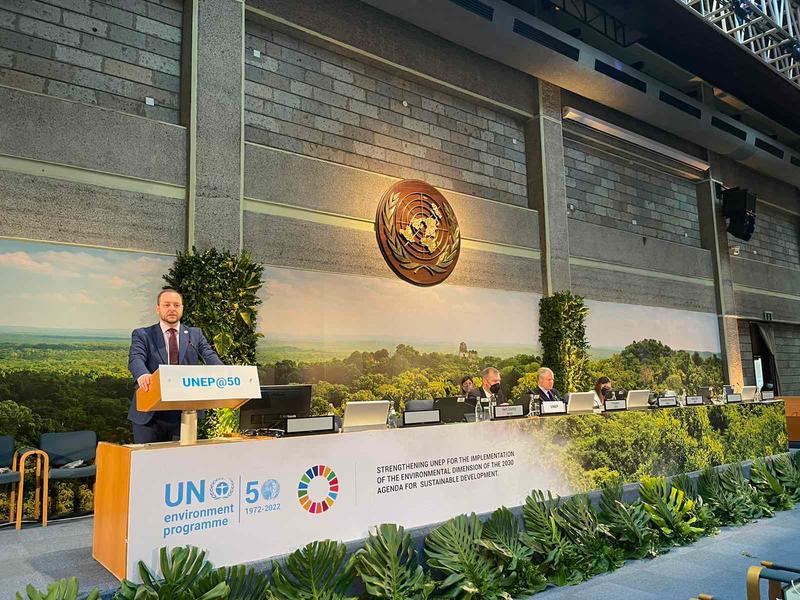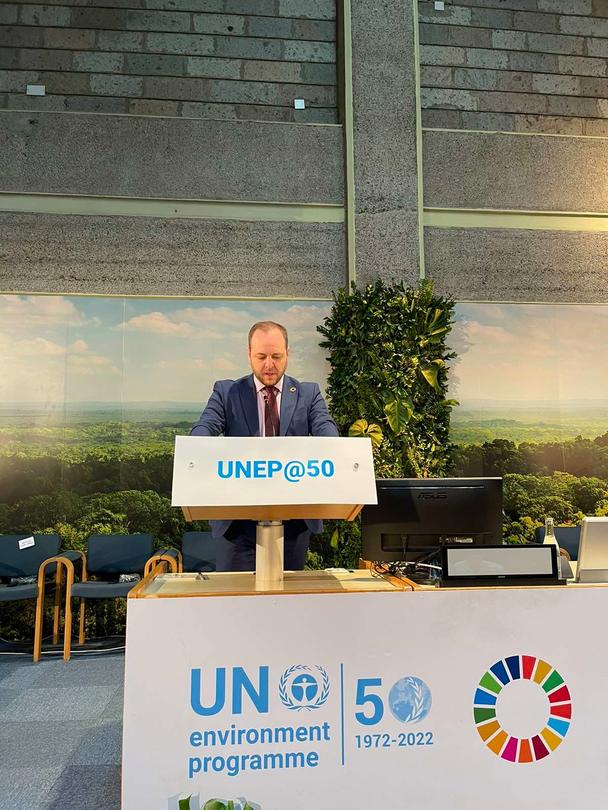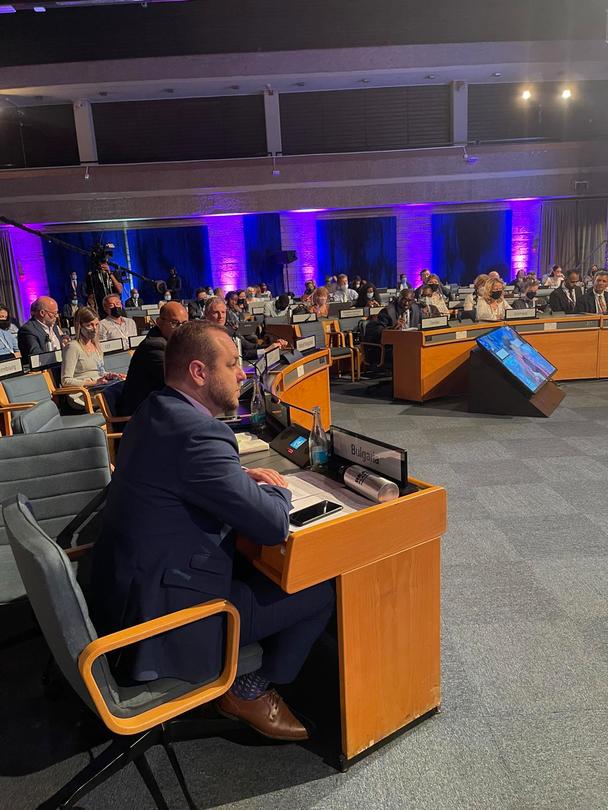Minister Borislav Sandov addressed a special session of the UN Environment Program
04 Mar, 2022 | 19:11Deputy Prime Minister for Climate Policy and Minister of Environment and Water Borislav Sandov participated at a special session to mark the 50th anniversary of the United Nations Environment Program (UNEP at 50), which took place in the period 3 – 4 March, 2022 in Nairobi, Kenya.
In his address at the Special session, Minister Sandov emphasized the importance of science in conducting policies that will contribute to green transformation and the implementation of the Sustainable Development Goals. He highlighted the contribution and leading role of the United Nations Environment Program in providing scientific information for ambitious, urgent and collective action by all stakeholders. “Policies and actions based on scientific data are the way to mitigate the effects of climate change and achieve the goals of the Paris Agreement,” said Minister Sandov.
During the Leadership Dialogue, the Deputy Prime Minister noted that climate change has its social and economic consequences, but the lack of action will entail a higher cost in the future. He emphasized the government’s commitment to climate policy, manifested by appointing a deputy prime minister in the field. Minister Sandov emphasized the role of the United Nations Environment Program in addressing global environmental challenges and the need for knowledge based on scientific data. The Deputy Prime Minister also shared his experience as a youth climate activist and called on young leaders to be more politically active. He added that climate decisions require the involvement not only of environment ministers, but also of other ministers, parliaments, institutions, civil society, and the business.
The special session of the UN Environment Program on the occasion of the 50th anniversary of the program was preceded by the Fifth Session of the UN Environment Assembly. The session ended with the adoption of a ministerial declaration, 10 resolutions, and 2 decisions.
One of the biggest successes of the meeting was the adoption of a Resolution on an international legally binding instrument on plastic pollution. An intergovernmental negotiation committee will be set up with a mandate to negotiate a legally binding global agreement to tackle pollution with plastics, including microplastics, covering the full life cycle of plastics. Resolutions were adopted on nature-based solutions for mineral resources management, a scientific panel - policies on chemicals, waste and pollution, mineral resources management, sustainable nitrogen management, good chemicals and waste management, etc.
The Ministerial Declaration of the Fifth Session of the United Nations Environment Assembly, the UNEP 50 Political Declaration, the resolutions and decisions adopted can be found at:
In the concluding part of UNEP 50, the European Union and its member states strongly condemned the Russian Federation’s attacks on Ukraine’s nuclear facilities. These attacks pose a potential risk of radiation pollution that threatens both public health and the environment. The EU and its member states have called for an immediate end to hostilities and for the Russian Federation to adhere to the UN Resolution “Aggression against Ukraine”. The statement was joined by the United States, Canada, Australia, the United Kingdom, Britain, Colombia, Iceland, Peru, Costa Rica, Serbia, Japan, New Zealand, Colombia, Ukraine, and Switzerland.


